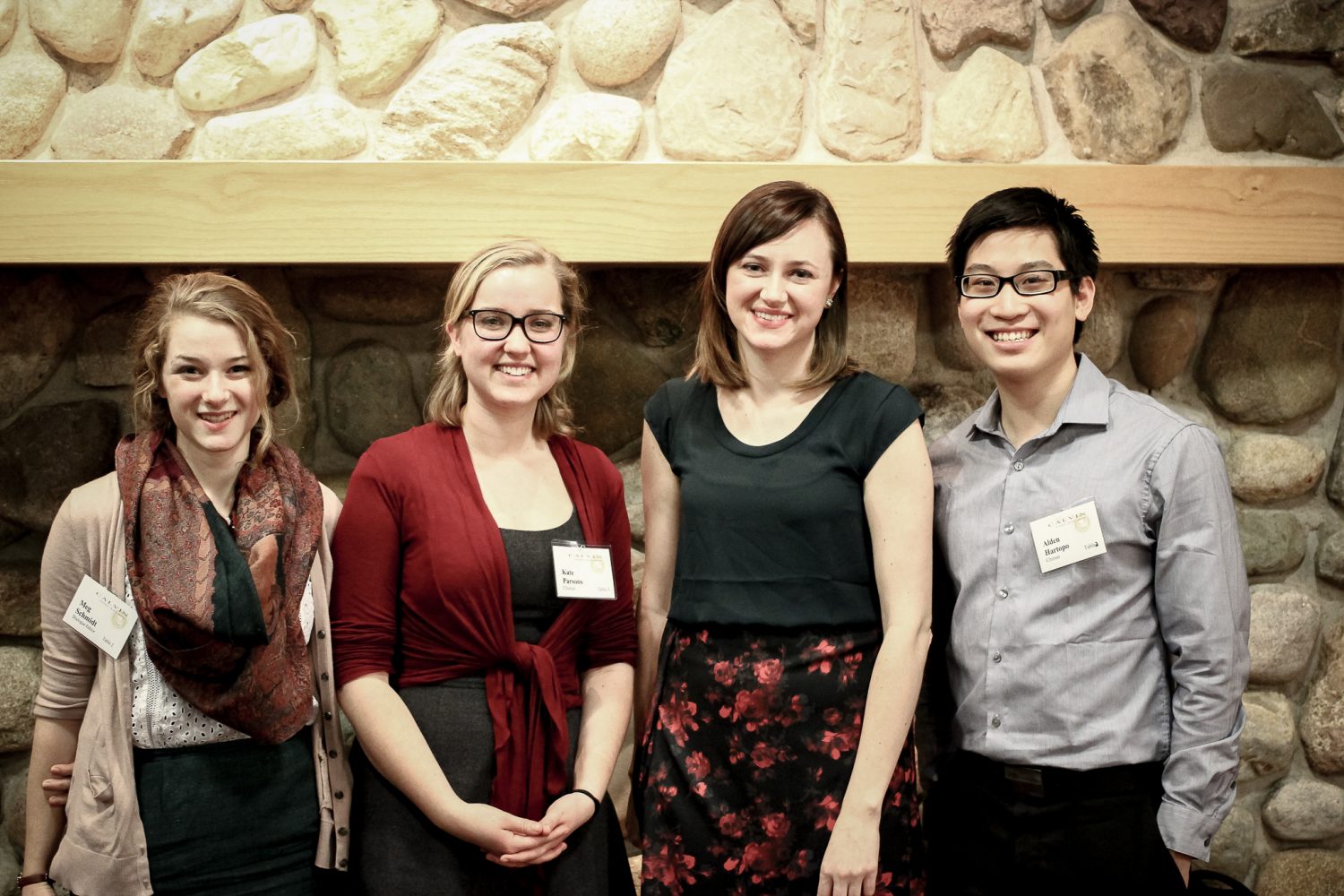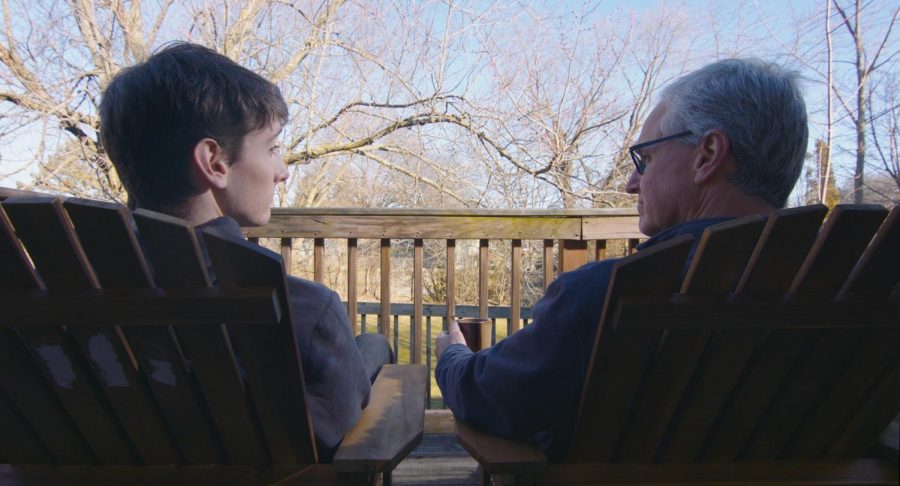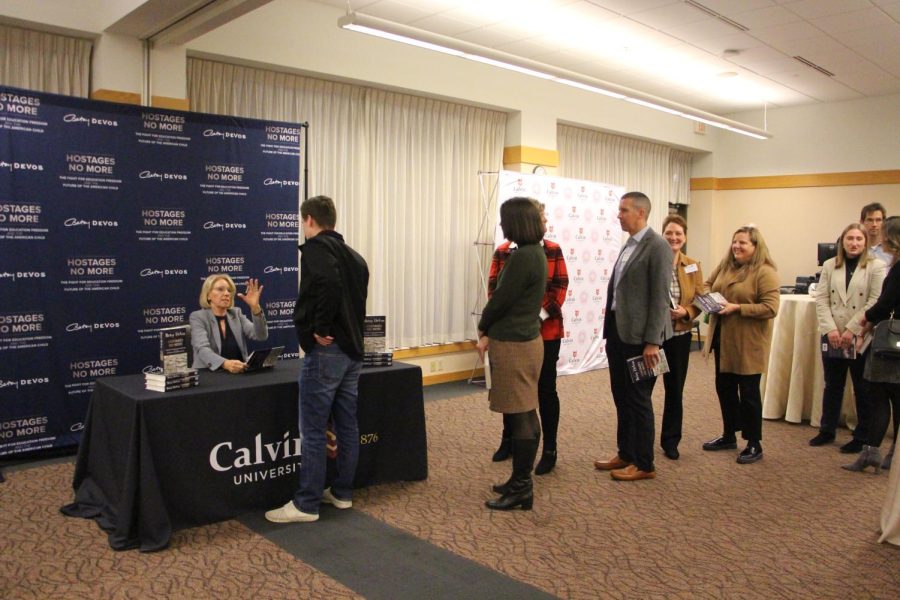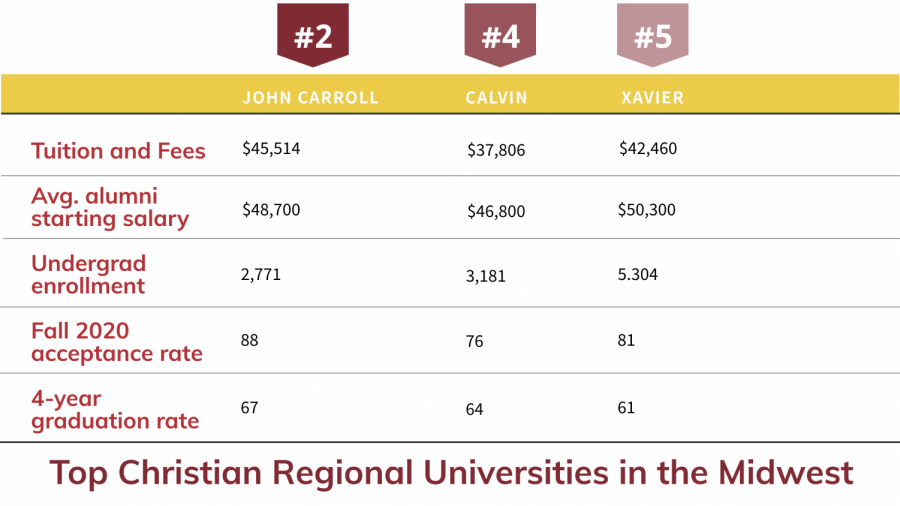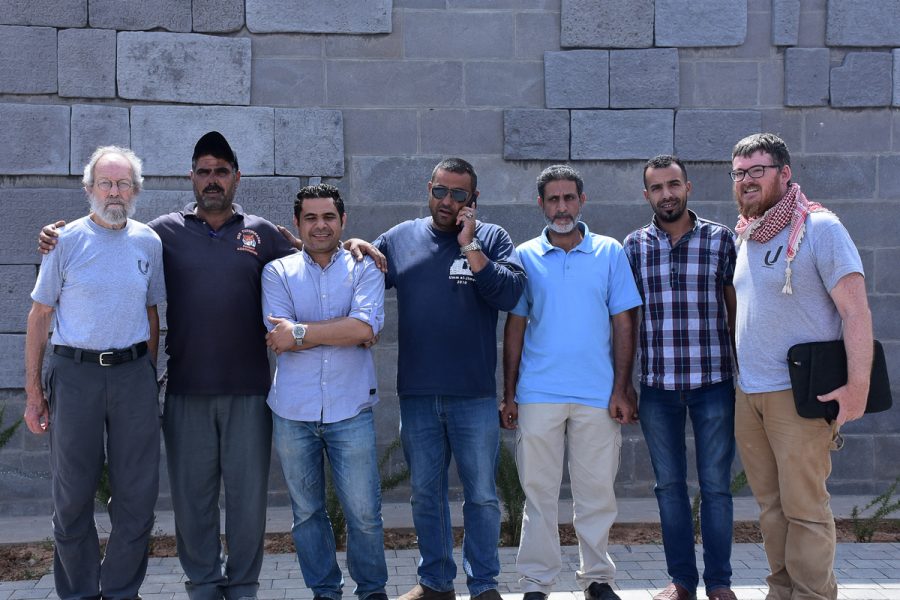Katelyn Beaty, a 2006 Calvin graduate, is the managing editor of Christianity Today. During her time at Calvin, Beaty was a Chimes staff member, a cultural discerner, a coordinator at the Students Activities Office and a member of the planning committee for the 2005 Festival of Faith and Music. For her contributions to the publishing world, the Alumni Association honored Beaty this month with the first-ever Young Alumni Award. After she accepted the award, she sat down with Chimes to discuss shalom, vocation and good journalism.
Chimes: When you look back, what are some of the skills you picked up in Chimes that you have carried over to your job?
Beaty: I think the biggest lesson was working on a team with lots of details and lots of decisions and learning how to do that in a respectful and also efficient way. That is a skill that I have to use everyday.
I also really enjoyed the kind of conversations that we could create as the student newspaper, seeing ourselves as not just a reflection of the community but an instigator of conversations in the community. I think if a publication is doing what it’s supposed to do, it is hosting the kind of conversations that will spur a community to change or at least to important discussions about their identity and their beliefs.
Chimes: In your acceptance speech you mentioned how Calvin taught you this idea of promoting shalom. How does Christian publishing bring about shalom?
Beaty: A community really needs an accurate reflection of itself. Part of the work of journalism is to tell the truth as accurately as possible, not only because information is important, but because information forms us and can challenge us. We are in a larger era for journalists where it’s easy to forget that role.
I think we’ve lost the cultural value of straight reporting. We’re much more attuned to opinion writing and wanting the quick, snappy opinion, and we’re not as attuned to the deep and sometimes boring but important reporting. I would love to see more Christians retain that kind of journalism.
Chimes: So how should Christians go about journalism?
Beaty: One thing that comes to mind: we have a responsibility to report bad news because we have a responsibility to tell the truth and there are a lot of bad things that happen in the world, including among Christians and Christian institutions.
Reporting the bad news can actually be a really crucial way that an institution changes and corrects whatever is going on. But there is also this temptation to revel in bad news and to print a lot of “gotcha” pieces, and I think that is ultimately an uncharitable posture to have toward the work of journalism. I think if Christians can report the bad news in a charitable way that is a really key skill.
Chimes: When you look back on your years in journalism what are some stories or articles or subjects that you feel really proud to have covered?
Beaty: [I led a] three-year reporting project called “This Is Our City.” That was a way of showcasing Christians in six different cities doing common-good work and specifically systemic transformation in law or business. One of the cities we focused on was Detroit.
Obviously there are negative reports. Our story was counter to that; we were really highlighting Christians who—out of their Christian commitment—have chosen to stay in Detroit and try to bloom where they are planted, saying, “We are not giving up on this city because God hasn’t given up on this city.”
I spent a lot of time in Detroit for that piece, and it was one of those experiences where I was really happy with how the story came out and I was personally moved. Being a good journalist doesn’t mean divorcing your emotions from the work.
I think it’s okay to be moved or inspired or angry. It’s how that comes out in your actual writing. I think there is this myth that to be a good journalist you have to be just about the facts, and I don’t think that’s how we operate or how we’re wired.
Chimes: I know you’re working on a book about vocation. That can be such a loaded word, especially here at Calvin. How are you approaching that?
Beaty: I am specifically writing for women. One of my arguments is that we’re now in this time where all higher education institutions educate women, and in places like Calvin, we tell young women that they can come out and be agents of renewal and stewards of shalom. But at the same time there are other cultural forces that slot women into particular roles.
There is a specific life course and script that I think a lot of women feel pressure to follow. I want to say to women that the desire to work is part of being made in God’s image, a reflection of who you are created to be.
I think there is a lot of freedom to understand vocation as not just the “one thing you are going to do for the rest of your life” but that there are seasons of vocation and that your vocation is actually who you are in Christ in all your different spheres of influence, but there is an integration to it.
Chimes: Do you have any advice for students at Calvin College who are interested in going into a publishing or writing career?
Beaty: Do all the practical things that would give you the skills to write better, so obviously being involved in something like Chimes and Dialogue or taking writing and journalism courses. To be a journalist today, I would say you need to know about social media and analytics and how to build a platform.
But honestly, for me Calvin was a time to learn for the sake of learning rather than to acquire skills. I think that’s distinctive of any liberal arts school. It is guided by this vision of learning for the development of the whole person.
So my advice would be to enjoy the time you have to learn for the sake of learning. It is a unique and special time, and I think that is something I miss about being a student.
This interview has been condensed and edited.




